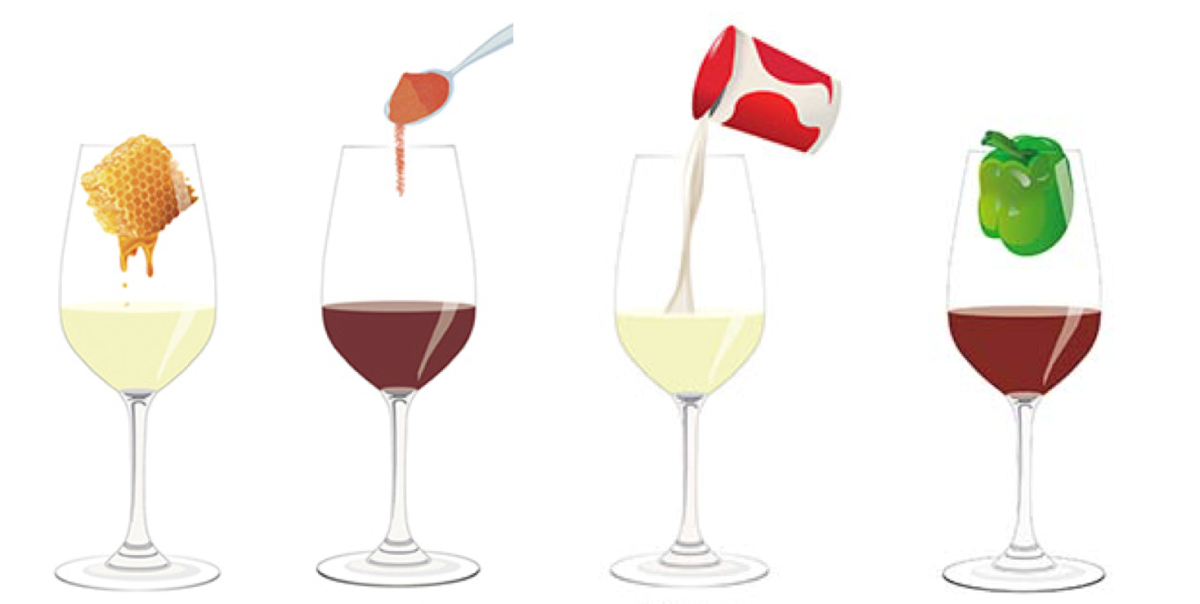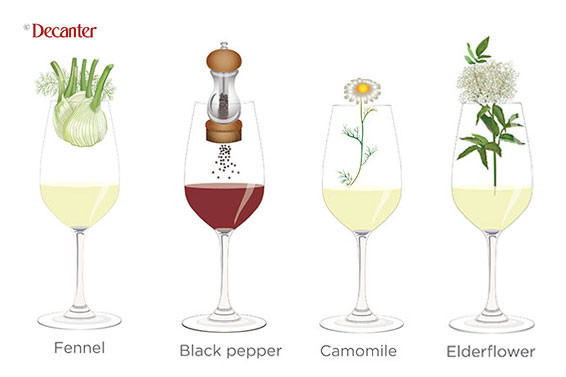Seen black and white pepper used in tasting notes? Credit: Nina Assam / Decanter
Both black and white pepper come from the same peppercorn plant, but how they are processed produces the difference in flavour.
The peppercorns are originally green in colour but black peppercorns are sun dried, while white peppercorns have the out layer removed, either before or after drying, leaving the white seed.
‘White pepper smells more pungent than black pepper, black pepper is slightly fresher and more complex,’ said Matt Walls, Decanter World Wine Awards regional chair for Rhône and judge for the Decanter Retailer Awards.
‘The ‘peppery’ flavour found in plants comes from a naturally occurring compound called rotundone, and it’s present in peppercorns, herbs such as oregano and certain grapes.
‘White pepper contains around twice the amount of rotundone as black pepper.’
Black pepper in wine
‘Peppery notes in wine tend to come from particular grape varieties rather than as a product of the winemaking process,’ said Walls.
According to Decanter’s tasting notes decoded, ‘black pepper notes usually crop up in earthy or spicy dry red wines, particularly those made from Syrah / Shiraz, either single-varietal or constituting a classic blend with Mourvèdre and Grenache.’
For example, the Yves Cuilleron, Bassenon, Côte-Rôtie 2012 was described by our tasting panel as having a ‘smoky note to the red fruit, pepper and capsicum.’
And the Vidal, Legacy Series Syrah, Gimblett Gravels 2010 has ‘a lovely kick of pepper.’
Walls said that black pepper notes can also be found in Pinot Noir, Gamay and Graciano, albeit not as commonly as in Syrah wines.
White pepper in wine
White pepper – generally a less common aroma – is a classic flavour of Gruner Veltliner, such as Lidl, Pfaffl Grüner Veltliner, Niederösterreich 2017 , which Decanter’s Amy Wislocki described as ‘a cracking Grüner Veltliner – open and expressive, with the trademark white pepper notes of a young Grüner.’
It is also found in the Domaine Papagiannakos, Assyrtiko, Attiki 2015, described as having a ‘supple texture with pithy acidity and crisp white pepper’.
Translated by Leo / 孔祥鑫
All rights reserved by Future plc. No part of this publication may be reproduced, distributed or transmitted in any form or by any means without the prior written permission of Decanter.
Only Official Media Partners (see About us) of DecanterChina.com may republish part of the content from the site without prior permission under strict Terms & Conditions. Contact china@decanter.com to learn about how to become an Official Media Partner of DecanterChina.com.








Comments
Submit